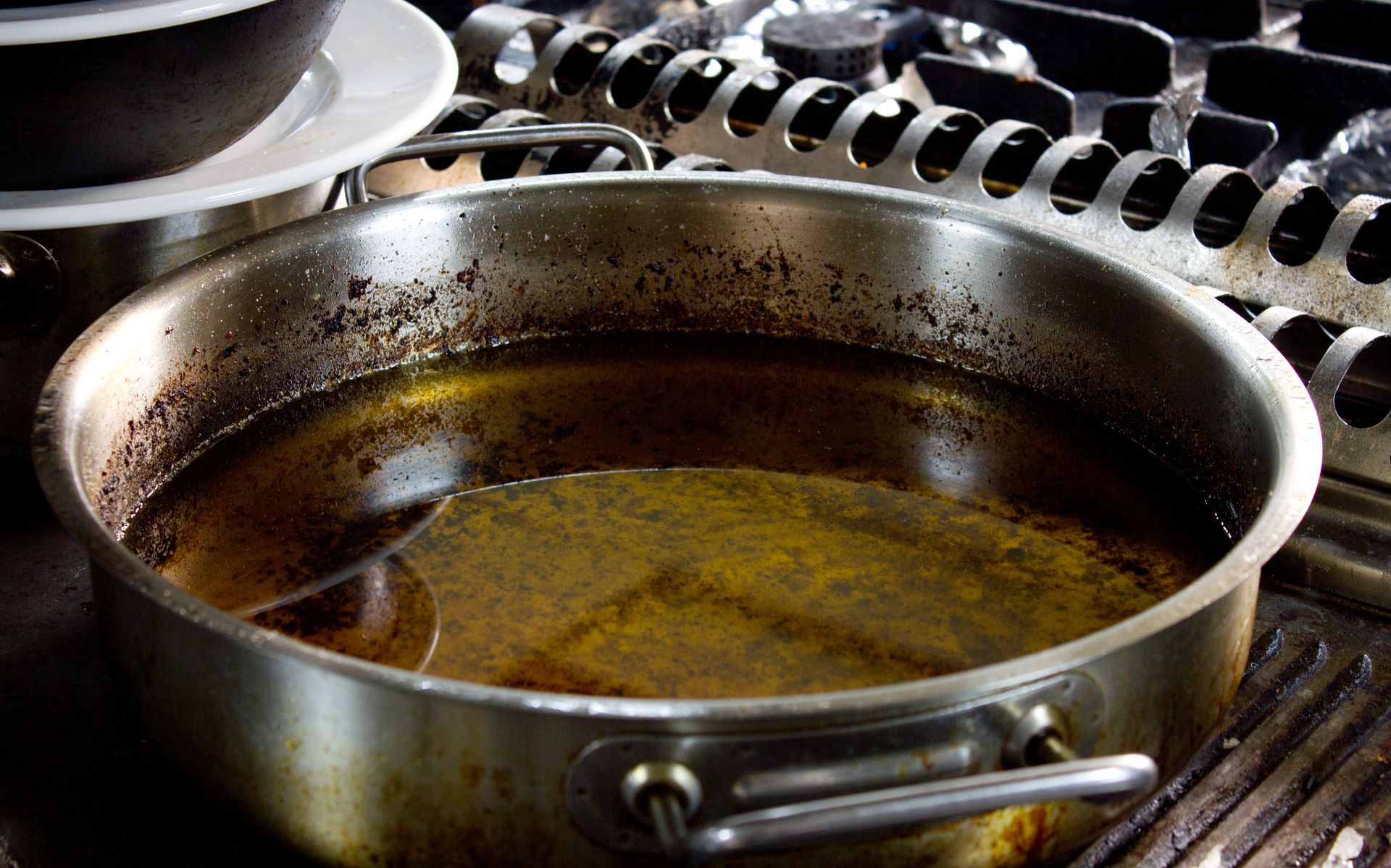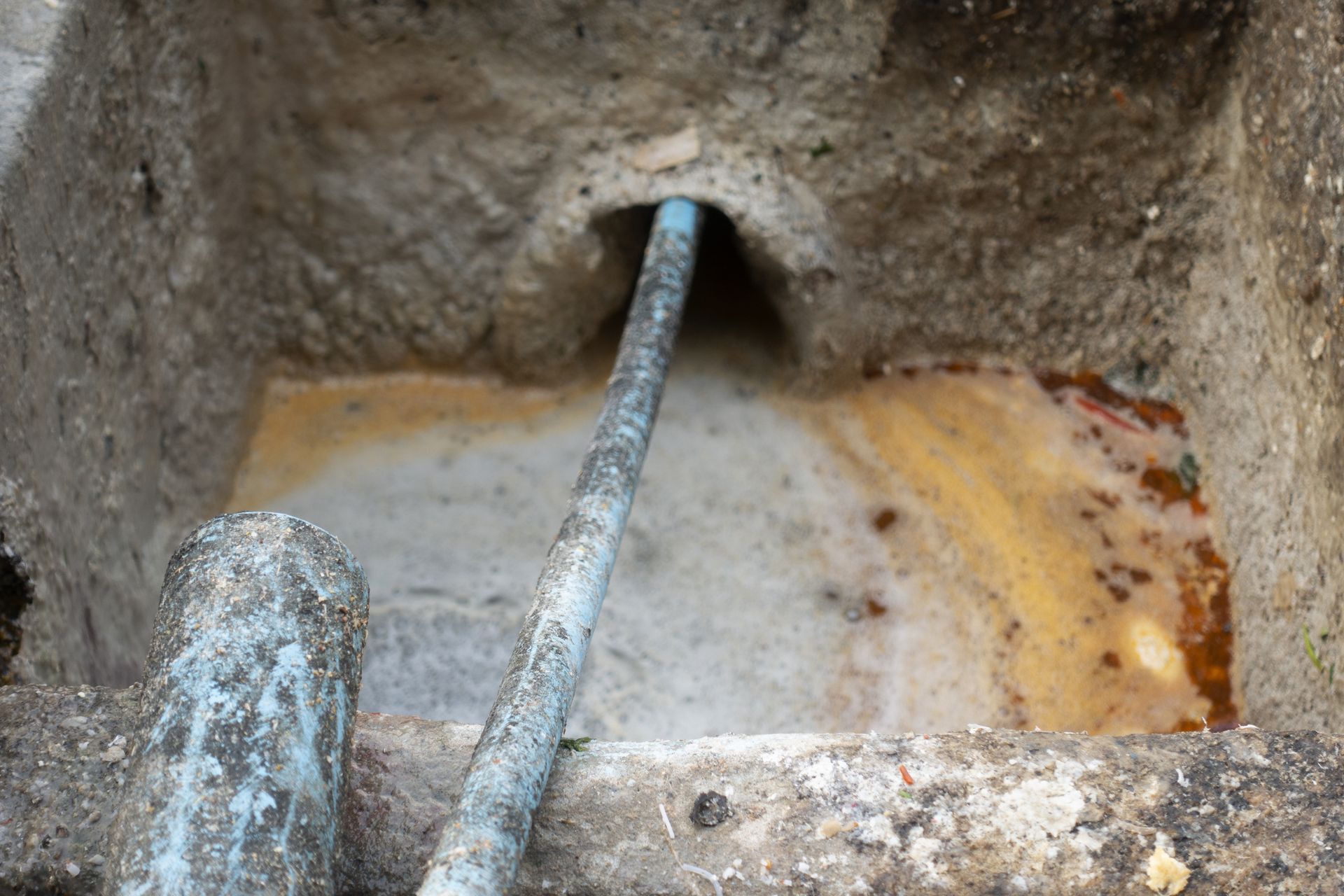Call Today for a FREE Quote
(404) 419-6887
Are There Disadvantages to Reusing Cooking Oil?

Yes. Sparingly reusing cooking oil is fine and even cost-effective, but continuously using the same batch of cooking oil for numerous meals can not only degrade the quality of the food but also accelerate contamination.
Reusing cooking oil is especially dangerous for restaurants because it can tarnish their most valuable asset: their food. Reheating cooking oil can lead to flavor transfer, mudding the taste of a dish. For example, if you fry fish in oil and then reuse that same batch to fry something else like potatoes, the potatoes may end up smelling and tasting like fish.
Moreover, food tends to absorb more oil the more degraded and gummy it gets. This can turn your dishes a darker color than normal and give them a soggy consistency that can make customers feel ill.
How frequently fryer oil needs to be filtered and how many times it can be filtered and reused in a commercial setting is highly dependent on the quality of oil, its smoke point, the type of food being fried and the volume of food being fried. There’s no one-size-fits-all rule because there are so many variables involved. Some restaurants may only filter their fryer oil once a day to remove particles and crumbs that accelerate oil degradation, while others may need to filter it multiple times a day or even replace the oil multiple times a day.
Is Reusing Cooking Oil Bad for Your Health?
Reusing cooking oil too many times isn’t just bad for your food but bad for the consumers. It can elevate their blood pressure, cholesterol levels and acidity, which in turn can increase their risk of heart disease and even certain cancers. This is because reheating cooking oil bolsters the presence of carcinogens like polycyclic aromatic hydrocarbons (PAH) and 4-hydroxy-2-nonenal (HNE). These substances augment free radicals (or unstable molecules) and raise inflammation, which can reduce your body’s immunity and make you vulnerable to certain diseases and cancers.
Frequently reusing cooking oil can also exacerbate your kitchen’s risk of bacteria growth. Cooking oil that’s been in storage for about one to two months can turn foul and potentially contaminate your food, exacerbating your risk of food poisoning. It’s usually easy to tell if your oil has spoiled – especially since it typically emits a powerful smell and looks darker, cloudy, is more viscous and may have foam on the surface when heated.
What Is Fryer Oil Filtration?
Filtration can help restaurants reuse cooking oil safely, mitigating costs without compromising quality. A fryer oil filtration system drains the oil from the deep fryer, removes food particles and replaces it once successfully strained. Filtering can extend the lifespan of cooking oil after it’s already been used by straining out the food particles and other contaminants that can hasten the oil’s deterioration and destabilize the cooking consistency.
How often filters in fryers need to be replaced is also dependent on the frequency of filtering. Paper filters should typically be replaced after each use, while metal filters can be reused, although they should be cleaned daily and need replacement every few months or as needed.
Suffice it to say that fryer oil filtration is essential to protect your business’s most important assets, from the quality of your food and the sanitation of your kitchen to your guests’ satisfaction.
Get Grease Trap Cleaning and Used Fryer Oil Recycling From the Leading Service Provider in Georgia
Since 2007, Southern Green Industries has been helping local restaurants keep their kitchen clean and in compliance with local regulations. We’ll take the chore of grease trap cleaning and waste fryer oil recycling off your plate without long-term contracts. We can even coordinate with inspectors and submit necessary manifests on your behalf so you can focus on other aspects of your business.
Hire experts who are flexible to your needs. Whether you want a one-off appointment or a long-term partnership, we’ll work quickly and thoroughly to limit disruption to your business. Get a free quote for our services today by calling (404) 419-6887 today.
Recent Blog Posts
Contact us Today for a FREE Quote
We are committed to making grease trap cleaning and fryer oil recycling as clean and easy as possible. If you’d like to learn more about our services or get a quote, give us a call at (404) 419-6887.
Southern Green Industries is an Atlanta owned and operated grease trap cleaning and fryer oil recycling company operating in Atlanta and throughout the entire state of Georgia.
All Rights Reserved | Southern Green Industries | Built by REV77


